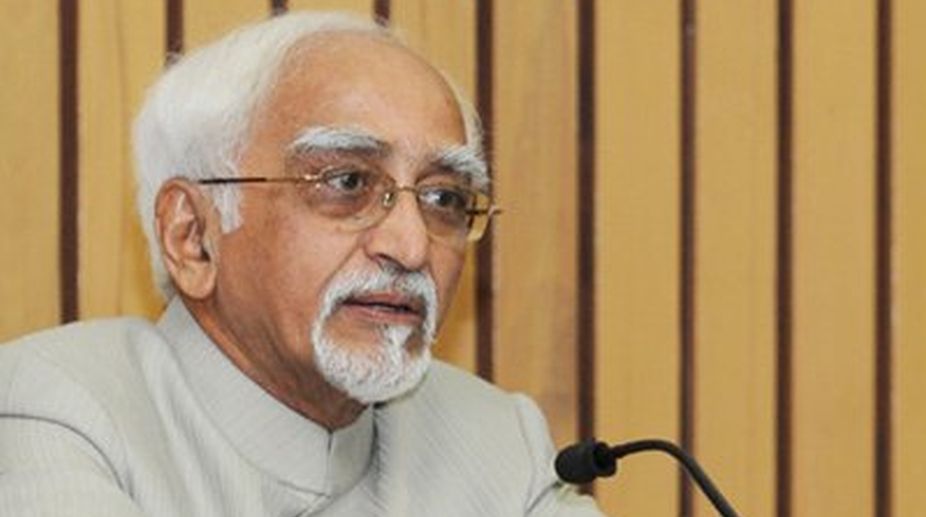Prosecute those behind exodus of Hindus from Kashmir Valley: BJP
Senior BJP leader Devender Singh Rana on Sunday called for an in-depth probe to identify, expose, prosecute those responsible for the irreparable catastrophe leading to their exodus.

Mohammed Hamid Ansari (Photo:
It was indeed refreshing that the Vice-President unshackled himself from the customary police/military perception of security, and emphasised the oft-overlooked reality that the roots of any security system lay in the happiness or satisfaction of the people. It was all the more significant that Mr Mohammed Hamid Ansari took that “social” angle when honouring the memory of the doyen of Indian strategic analysts, K Subrahmanyam. Sure, everybody will assert that there is no “military” solution to unrest ~ be it in the Kashmir Valley or the “red zone” in central India ~ but Mr Ansari went even deeper: trouble arose when the rule of law did not prevail, discontent and frustration festered. In recent times the President has slammed increasing intolerance, Mr Ansari preferred to highlight “religious majoritarianism” and “cultural nationalism” as key challenges confronting the nation. And so the approach to internal security needed “an adjustment”.
Issues of individual liberty and society’s security often appeared at odds with each other, but the fact was that the framework of traditional security was as important as human security at individual and community levels. Stressing the principles enshrined in the Preamble to the Constitution, the Vice-President said “these go beyond the framework of traditional security” to create conditions in which “citizens can endeavour to bring forth the desired fruits of their labour”.
It was clear that the prevailing security situation raised concerns, seven decades after Independence there was widespread unrest, discontent and conflicts. “There are threats emanating from regional and social imbalances which have given rise to, and fuel, insurgencies, terrorism, subnationalism and communalism”. While propriety prevented the Vice-President from any apportioning of blame, it was obvious that he was talking in terms of the collective failure of the political system, and the short-sighted approach of the current leaders who thrived on the vote-bank politics that made the divide-and-rule tactics of the colonial era appear rather benign. Mr Ansari also highlighted economic disparities, urban unrest, rural upsurge and the disenchantment of youth.
Advertisement
“The quality of life in rural and urban areas, except for the affluent, has deteriorated and the gaps between have and have-nots have widened” he said in what was actually a scathing attack on sustained misgovernance. And none dare dispute his demand that “the negative trends in internal security require to be addressed through well directed actions in the political, socio-economic and security fields”. The trouble is “who will bell the cat”? The Vice-President’s caution will attract as little attention as the apex court’s condemnation of political corruption as articulated in its recent order that stymied ambitious moves in the “deep south”. Who will win in UP is of greater importance to those who make pretence to leadership.
Advertisement